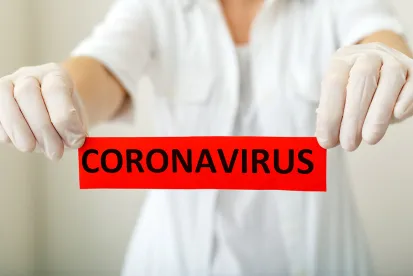COVID-19 is causing more than public health and economic issues in the United States.
A July 16, 2020 report in the Wall-Street Journal reported on new proposed legislation that would address liability issues in COVID-19 patient care. As cases continue to spike across the country, Senate Majority Leader Mitch McConnell (R-Kentucky) and Sen. John Cornyn (R-Texas) are working on a measure that would give federal courts jurisdiction over personal injury and medical liability claims due to COVID-19.
State or Federal: Where does jurisdiction lie?
Historically, personal injury and medical liability claims can be tried in both state and federal court. However, state court has been the de facto jurisdiction for personal injury and medical liability cases, with claims being based on state laws for negligence and liability.
Under this provision, defendants would have the cases tried in federal courts rather than state courts. Business groups have lobbied for this change, citing the variation in laws and regulations at the state level as being unfavorable to defendants. Giving jurisdiction over to federal courts presents potentially more favorable outcomes to defendants because of more conservative juries, a higher burden of proof, and faster timetables.
Giving sole jurisdiction over these cases in COVID-related claims is a huge shift in the legal landscape, though. This move, while temporary according to the legislation, will create precedents for defendants to take their cases to federal court, potentially disadvantaging plaintiffs.
Shifting liability requirements
Moreover, as part of the proposal, defendants in personal injury and medical liability claims would only be held liable if they didn’t make “reasonable efforts” to comply with public health guidelines. The bar for liability, rather, would be set at gross negligence or intentional misconduct. Gross negligence is qualified as failing to take reasonable precautions” to comply with public health guidelines and instead acting with “reckless disregard” for the safety and wellbeing of others.
Legal liability varies from state to state depending on personal injury and medical claims laws operate in a given jurisdiction, though many states have instituted liability shields for healthcare providers and facilities since the pandemic began in the spring. However, these regulations naturally operate at the state level and keep personal injury and medical liability claims within the scope of the state courts.
Trial lawyers have been speaking out against McConnell and Cornyn’s proposed legislation. Julia Duncan, senior director of government affairs at trial lawyer group the American Association for Justice, argues that this push is taking advantage of the pandemic to protect businesses from accountability.
“If Congress wipes away this possibility, all businesses will know they can act unreasonably and not be held publicly accountable,” Duncan said. “This means that more businesses will cut corners on safety and more people will get sick. Lawsuits are helping to keep us safe. Immunity will lead to increased infection and death.”
This is not the first piece of federal legislation that addresses liability for COVID-related care. On March 27, President Donald Trump signed H.R. 748, the “Coronavirus Aid, Relief and Economic Security Act” (CARES Act) into law. The legislation included Good Samaritan language that extended federal liability protections to volunteer health care professionals during the COVID-19 emergency response.



 />i
/>i


